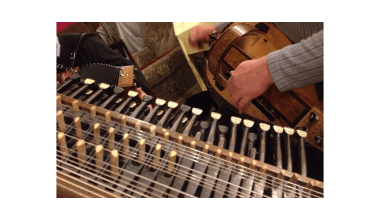Music is a universal language, but it comes with its own set of unique terms and jargon. Whether you’re an aspiring musician, a passionate listener, or someone stepping into the world of music for the first time, knowing these musician terms can make your journey much more enjoyable. In this blog, we’ll walk you through some of the most common music terms in an easy-to-read format, sprinkled with relatable examples and real-world applications.
What Are Musician Terms?
Musician terms are the words and phrases used to describe musical concepts, techniques, instruments, and performance practices. Just like any other specialized field, music has its own vocabulary that helps musicians communicate efficiently. These terms are often derived from Italian, German, or French, reflecting the rich history of classical music.
So, let’s start decoding these terms together! Whether you’re a newbie or just brushing up your knowledge, this guide has got you covered.
Commonly Used Musician Terms
1. Tempo: The Speed of Music
Tempo refers to the speed or pace of a piece of music. You’ll often hear musicians talk about “allegro” (fast) or “adagio” (slow). Imagine your favorite upbeat song—its tempo is likely quick and energizing. On the other hand, a lullaby might have a slower tempo to help you relax.
Why It Matters:
Tempo sets the mood of the music. It’s like the heartbeat of a song, guiding how it feels and flows.
2. Dynamics: Volume Levels
Dynamics refer to the loudness or softness of music. Terms like “piano” (soft) and “forte” (loud) help musicians know how to play. Think of dynamics as the emotional range of a song, from whispering soft to roaring loud.
Fun Fact:
Ever heard a song suddenly get really quiet, then burst into loudness? That’s called a dynamic contrast, and it’s a tool to keep listeners engaged.
Musician Terms for Instruments
3. Timbre: The Unique Sound of an Instrument
Timbre (pronounced “tam-ber”) is the characteristic sound of an instrument or voice. It’s what makes a violin sound different from a guitar, even if they’re playing the same note.
How to Spot It:
Close your eyes and listen to a song. Can you pick out the guitar or the piano? That’s you identifying timbre!
4. Arpeggio: Broken Chords
An arpeggio is when the notes of a chord are played one after the other, rather than all at once. It’s a technique often used in classical music and modern pop.
Example:
Think of the iconic intro to “Stairway to Heaven” by Led Zeppelin. That’s a beautiful arpeggio at work.
Musician Terms for Performance
5. Legato and Staccato: Smooth or Short
Legato means to play notes smoothly and connected, while staccato means to play them short and detached. These terms give music its texture and feel.
Real-Life Analogy:
Legato is like gliding on ice, while staccato is like hopping on stones across a river.
6. Improvisation: On-the-Spot Creativity
Improvisation is the art of creating music on the fly. It’s a key skill in jazz and other genres, allowing musicians to showcase their creativity and personality.
Fun Tip:
If you’re learning an instrument, try improvising a simple melody over a backing track. It’s both fun and educational.
Expanding Your Vocabulary: Advanced Musician Terms
7. Crescendo and Decrescendo
Crescendo means gradually getting louder, while decrescendo means gradually getting softer. These are essential for adding drama and emotion to a performance.
8. Key Signature
A key signature indicates the key of a piece of music, telling you which notes will be sharp or flat throughout. Understanding key signatures is crucial for reading sheet music.
Quick Example:
A song in the key of G major will have one sharp note: F#.
Wrapping It All Up
Music is a beautiful art form, and understanding these musician terms can deepen your appreciation for it. From tempo to timbre, each term adds another layer to the rich tapestry of music. So, the next time you hear a song or play an instrument, remember these terms and let them guide you.
For further reading, explore these related articles:
For additional resources on music marketing and distribution, visit DMT Records Private Limited.






